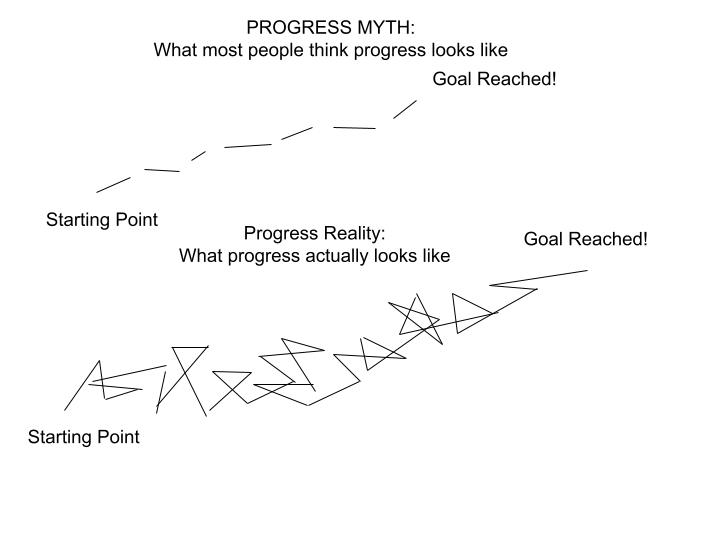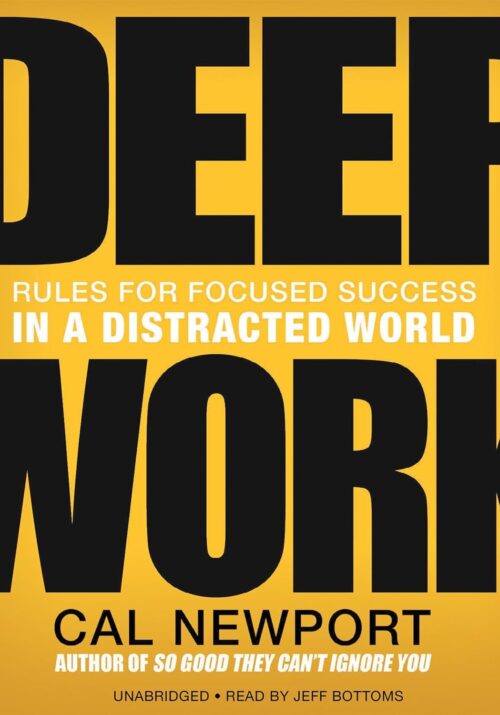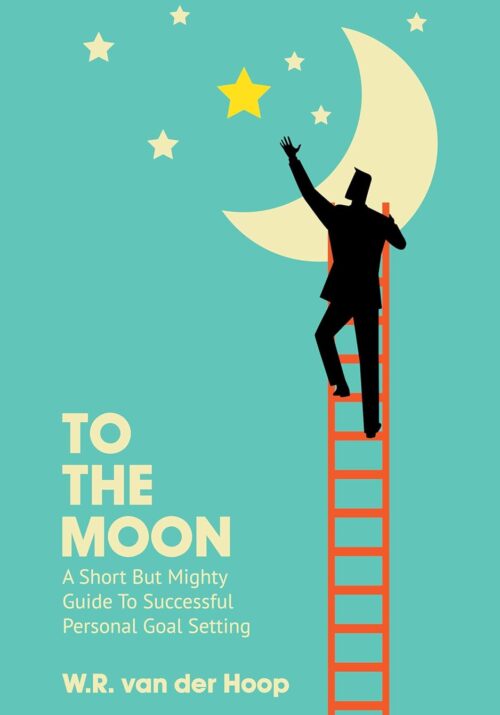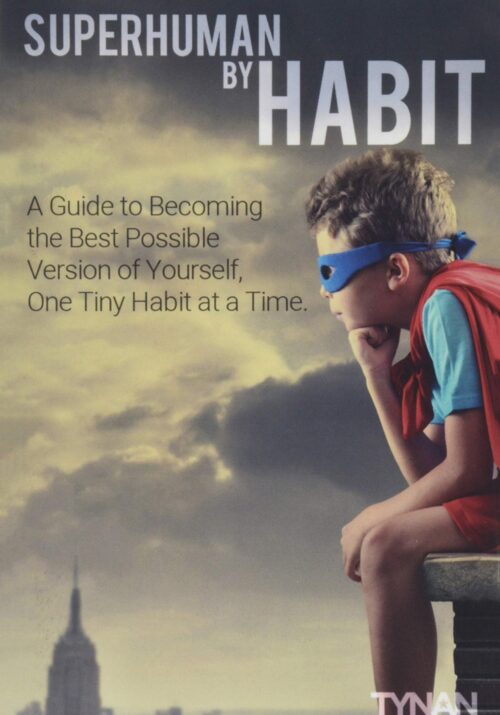Train Your Brian For Growth
Your brain is an extraordinary bio computer, and it’s constantly running programs that work either for or against you. That’s why I want you to be aware of two destructive thoughts – viruses, if you will – that can pop up when you’re learning something new. The trick is to catch these thought viruses and turn them into productive questions. Why? Because the brain is wired to answer questions. No matter what question you ask, your brain will immediately start searching for an answer. When you transform these thoughts into helpful, productive questions, you train your brain to help you learn, grow, and improve.
The first destructive thought to watch out for is “I know this already.” Whenever we feel like we already know something, our minds disengage and shut down. The next time you hear yourself thinking or saying, “I know this already,” especially as you read this book, immediately catch that thought and switch to a growth-minded question. Ask yourself, “What can I learn from this?” Ask it again and again with genuine curiosity. “What can I learn from this? What can I learn from this?”
| Instead of.. | Ask yourself… |
| “I know this already.” | “What can I learn from this?” |
| “This won’t work for me.” | “How can this work for me?” |
This reminds me of Secrets of the Millionaire Mind…
As luck would have it, I got some advice from an extremely rich friend of my father’s. He was at my parents’ house playing cards with the “boys” and, in passing, noticed me. This was the third time I’d moved back home, and I was living in the “”lower-level suite,” otherwise known as the basement. I suppose my dad had complained to him of my woefu existence because when he saw me, he had the sympathy in his eyes usually reserved for the bereaved at a funeral.
He said, “Harv, I started in the same way as you, a complete disaster.” Great, I thought, this was making me feel a lot better. I should let him know that I was busy… watching the paint peel off the wall.
He kept going: “But then I got some advice that changed my life, and I’d like to pass it on to you.” Oh, no, here comes the father-son lecture, and he’s not even my father! Finally he came out with it: “Harv, if you’re not doing as well as you’d like, all that means is there’s something you don’t know.” Being a brash young man at the time, I thought I knew pretty well everything, but alas, my bank account said something different. So I finally began to listen. He continued, “Did you know that most rich people think in very similar ways?”
I said, “No, I never really considered that.”To which he replied, “It’s not an exact science, but for the most part, rich people think a certain way and poor people think a completely different way, and those ways of thinking determine their actions and therefore determine their results.” He went on, “If you thought the way rich people do and did what rich people do, do you believe you could become rich too?” I remember answering with all the confidence of a mush ball, “I think so.” “ Then,” he replied, “all you have to do is copy how rich people think.”
How to Deal with the Fear of Anything
Everyone feels afraid. Every top artist, athlete, writer, performer, parent, businessperson, social activist, entrepreneur, scientist, and military leader. Every person you know and admire. They all experience fear on a regular basis. You’re not broken or weak if you’re afraid You’re human.
But this begs the question: Why does fear paralyze some people while others move through it? This one ability is what separates those who aspire from those who achieve.
Our first and biggest mistake is that we’ve turned fear into the enemy, a big, burly malignant monster standing between us and our dreams. But what if this idea is not only wrong but doing us more harm than good? What if we’ve been taught to believe a disempowering story about this natural emotion that’s actually designed to serve us, not stop us?
Fear is an evolutionary response that kept our ancestors from being eaten by tigers. These days, that same instinct prevents us from walking into ongoing traffic.
Fear is healthy if it inspires you to act. If the fear of losing custody of your kids gets you clean and sober, say thank you. If the fear of being suffocated under a pile of debt inspires you to get your financial act together, say thank you.
Nine times out of ten, our fear is directive. It’s a signpost, pointing us in the exact direction we should want to go.
How do you know if your fear is directive? One sign is if you can’t get a certain idea out of your heart or mind. No matter how hard you try, it keeps popping back. Ideas like taking singing lessons, opening a bakery, writing a children’s book, moving across the country, learning Spanish,
Anytime you imagine moving toward that idea, you may feel afraid. But fear doesn’t speak with words, she’s doing her best to send a message making you feel. And this is where we often get it wrong. We interpret any fear- like sensation to mean, “Danger.Stop. Don’t move ahead.” One cue, the voice in our head rattle off a list of rationalizations designed to keep us aways from the perceived dagger:
The result? We take no action. Zero growth occurs. Comfort zone intact.
But what if we misinterpreted the signal? What if fear’s message wasn’t “Danger” but “DO IT!”
The more scared we are of a work or calling, the more sure we can be that we have to do it.
Here’s what to do instead. Write down the worst, worst, worst-case scenario that could possibly happen if you move ahead with this exciting yet-fear-inducing idea. Next rate it on a scale of 1-10 in terms of the likelihood that this worst-case scenario will occur, with one being improbable and ten being it’s practically guaranteed to happen. Finally, imagine the worst-case- scenario – your worst nightmare – does indeed come true. Then what? Write down an action plan for how you’d recover, rebuild, and get back on your feet.
Then I flipped the script and wrote down my best-case scenarios. I imagined all the potential benefits I might gain from moving forward.
Florence Nightingale was fearless. Each of us has had some version of this conversation, when an adult does us the cruel injustice – whatever their intentions – of puncturing our little bubble. They think they are preparing us for the future, when really they’re just foisting upon us their own fear, their own limitations.
On February 7 1837, at age sixteen, she was to get what she was later to refer to as the “call.”
To what? To where? And how?
All she could feel was that it was a mysterious word from on high which imparted to her the sense that something was expected of her, that she was to be of service, to commit to something different.
You might think that a brave girl like Florence Nightingale would be primed to listen to that voice, but like so many of us, she had internalized the beliefs of her time, becoming a scared teenager who could not dare to imagine a path other than that of her parents.
For eight years this call sat there in the recesses of Florence’s mind like a elephant in the room, not to be addressed.
There was China to look after, Strachey wrote. Her father expected her to read to him. She needed to find someone to marry. There was gossip to discuss. There was nothing to do, and that was all that woman of means was allowed to do: nothing.
Barraged with this anal pressure, Florence ignored the call, afraid to let it intrude on polite society. Sure, she helped the occasional sick neighbor. She read books. She met interesting people like Dr. Elizabeth Blackweel, the first female doctor. But still at twenty-five, when she was offered an opportunity to volunteer at the Salisbury Hospital, she let her mother squelch it. Work in a hospital? Why, they’d sooner she become a prostitute!
After eight years of denial, another call came. The voice asked, more pointedly this time: Are you going to let reputation hold you back from service? That was precisely the fear: What would people think?
And what about when they try to guilt you? When they try to punish you? What if you’re afraid to let people down? That’s what Nightingale faced. Parents who took her ambition as an indictment of their own lack of ambition. Her mother wept that she was planning to “disgrace herself,” while her father raged at her for being spoiled and ungrateful.
The so-called Hero’s Journey, the “call to adventure” is followed in almost all cases by what? The refusal of the call. Because it’s too hard, too scary, because they must obviously have picked the wrong person. That’s the conversation Nightingale had with herself, not for a little while but for sixteen years.
Fear does this. It keeps us from our destiny. It holds us back and freezes us. It gives us a million reasons why. Or why not.
It was a terrifying leap. Walking away from a life of ease. Flouting convention. The chorus of donuts and demands. Of course this had held her back – it hold so many of us back. But for Nightingale it would no longer. Two weeks later, she took the leap.
Within a year, she was setting up a field hospital for wounded troops in Crimea. The conditions were horrendous. Men died in the halls of building and on the decks of ships for lack of beds. Rats stole food from their plates. Patients huddled in freezing rooms without clothes, some spending their last moment on earth completely naked.
DECIDING WHAT YOU WANT IS THE FIRST STEP TO GETTING IT
Whenever I work one-on-one with people, during our initial session I say, “ I can help you get anything you want, but first you have to tell me what that is.” Sounds simple. But simple doesn’t always mean easy.
How many of us are crystal clear about what we’re working to create? Can we honestly say, “THIS. THIS___ [idea, relationship, project, film, book, cause, startup, skill, healing journey, habit, goal, etc.] is the main focus of my life right now. This is what I’m willing to work days, nights, and weekends to make happen, no matter what it takes.”
When I’ve been unclear about my primary focus or, worse, too afraid to admit what I want, suffering always ensues. Headaches and heartaches all around. Ignoring our truth doesn’t make it go away, it only spawns despair and dysfunction.
When you don’t have thing clear and meaningful to work toward, you can experience a host of other problems:
- Feeling lost, not where you should be by now, and off track. You have recurring thoughts like, Is this all there is? Am I really doing what I’m supposed to be doing in life?
- Struggling to prioritize or schedule your time because you don’t know what’s most important or how to navigate competing opportunities.
- Failing to produce meaningful results, despite always being “super busy.” You confuse activity with accomplishment: I’m running myself ragged, but I have nothing substantial to show for it.
The late Nobel prize winning Dr. Albert Schweitzer was once asked, “Doctor, what is wrong with men today?” The great doctor was silent for a moment, and then he said, “Men simply do not think!”
We live today in a golden age. This is an era that humanity has looked forward to, dreamed of, and worked toward for thousands of years. But since it is here we pretty well take it for granted.. We are fortunate to live in the richest era that ever existed on the face of the earth. A land of abundant opportunity for everyone. But do you know what happens?
Let’s take 100 individuals who start even at the age of 25. Do you have any idea what will happen to those men and women by the time they are 65?
These 100 people, who all start even at the age of 25, all believe they’re going to be successful. If you ask any one of them if they want to be a success they would tell you they did. You would notice that they are eager toward life, there is a certain sparkle in their eye, an erectness to their carriage. Life seems like a pretty interesting adventure to them.
But by the time they are 65, only one will be rich, four will be financially independent, 41 will still be working, and 54 will be broke – depending on others for life’s necessities.
Now think a moment: Out of the 100, only five make the grade!
Was there a key that would guarantee a person’s becoming successful if they only knew about it and knew how to use it? Well there is such a key and I have found it.
Have you ever wondered why so many people work so hard and honestly without ever achieving anything in particular? And why others don’t seem to work hard, yet seem to get everything? They seem to have the “magic touch”.” You’ve heard people say about someone, “Everything he touches turns to gold.
Have you ever noticed that a person who becomes successful tends to continue to become more successful? On the other hand, have you noticed how someone who is a failure tends to continue to fail?
The difference is goals. Some of us have goals, some don’t. People with goals succeed because they know where they are going. It’s that simple.
“Success is the progressive realization of a worthy ideal.”
Start before your ready
I was standing outside, looking up at the Viacom building in Times Square. Tourists and fast-moving business folks bumped me from all sides. My palms were sweaty. I was light-headed. Nauseated. I eyed the metal garbage can on the corner of Broadway and Forty-fifth. Should I throw up now or wait until I’m inside? I felt like a complete fraud. Not one part of me felt ready for what I was about to do.
Let me explain.
Remember how I sobbed in my first real dance class at Broadway Dance Center? How I couldn’t believe I’d wasted so many years thinking about dance rather than actually dancing? You should know, I barely made it through that class. Yet even though I had trouble following the choreography and didn’t vibe with the music or dance style, that single class changed my life. It released my inner dance kraken.
One day, something unexpected happened. After class, while I was still dripping with sweat and trying to catch my breath, the teacher came over to me and said, “You’re a good dancer. You got energy. Have you ever considered teaching?”
I legitimately looked over each shoulder in disbelief. “WHAT?!?” ME?!? TEACH?!?!?” MY MIND SCRAMBLED. I WONDERED, IS SHE HIGH? I HAVE NO CLUE WHAT I’M DOING.
She continued, “We have teacher auditions coming up. You should try out.”
Though I was stunned and skeptical, I was also intrigued.
Back at home, I sat on my air mattress stressing over whether to give this teacher audition a shot. I was torn. No doubt, I loved what I was learning and felt so alive in class. That’s when I thought to ask myself a simple, illuminating questions:
In ten years, will I regret NOT doing this?
In other words, when I’m thirty-five, will I look back at my twenty-five year-old self and regret that I didn’t take this chance to pursue dance and fitness more seriously? Answer: Abso-friggin-lutely.
I knew instantly that thirty-five-year-old Marie would most certainly slap current-day Marie. Hard.
But here’s the truth I’ve come to learn time and time again:
Your never feel ready to do the important things you’re meant to do.
How we live our life is our state of mind. How we live our lives is the results of the story we believe in ourselves
Other people opinion of you doesn’t have to become your reality
Let me tell you how important words are.
If I tell you can’t do that, someone else has to come along to tell you, you can do, you can do it, you can do it 16 times to neutralize that 1 time.
Faith come by hearing, hearing, and hearing
We have to hold ourselves to a higher standard and monitor our mouth.
In life you don’t get what you want. You get what you are.
“I think you need to focus more on who controls the empire between your ears and less on what happened to you.”
“Remember, we are complicit when we take offense. No one can make us feel inferior without our help,? “ something is only harmful if you allow it to hurt your character.”
Progress Not Perfection
All too often we stop ourselves from doing anything new because we want so badly to get it right. We want to present an image to the world that we have it together. We have little to no tolerance for allowing ourselves the space and grace to be a beginner. Perfectionism isn’t a set behavior, it’s a destructive way of thinking about yourself. When you make a mistake, you don’t just feel disappointment in how you did but in who you are.
Here how destructive perfectionism can be. Between 2003 and 2006, researchers interviewed the friends and family of people who had recently killed themselves, and discovered something shocking. More than half of the deceased were described as “perfectionists” by their loved ones. Another study revealed that perfectionists tend to die earlier while, by contrast, conscientious optimists tend to live longer. In over twenty years of research, Dr. Paul Hewitt and his colleague Dr. Gordon Flett found that perfectionism correlates with depression, anxiety, eating disorders, and other mental health problems.
From this moment forward, that’s all you strive for. Progress not perfection. Capisce? That’s the measuring stick you use to determine whether you’re on track. That’s all you care about. Did you make progress? Did you apply effort to learn and grow as it relates to what you want? It doesn’t matter how small: progress is all you’re after.

Get 1% better – Atomic Habit by James Clear
THE FATE OF British Cycling changed one day in 2003. The organization, which was the governing body for professional cycling in Great Britain, had recently hired Dave Brailsford as its new performance director. At the time, progressional cyclists in Great Britain had endured nearly one hundred years of mediocrity. Since 1908, British riders had won just a single gold medal at the Olympic Games, and they had fared even worse in cycling’s biggest race, the Tour de France. In 110 years, no British cyclist had ever won the event.
In fact, the performance of British riders had been so underwhelming that one of the top bike manufacturers in Europe refused to sell bikes to the team because they were afraid that it would hurt sales if other professionals saw the Brits using their gear.
Brailsford had been hired to put British Cycling on a new trajectory. What made him different from previous coaches was his relentless commitment to a strategy that he referred to as “the aggregation of marginal gains,” which was the philosophy of searching for a tiny margin of improvement in everything you do. Brailsford said, “The whole principle came from the idea that if you broke down everything you could think of that goes into riding a bike, and then improve it by 1 percent, you will get a significant increase when you put them all together.”
Brailsford and his coaches began by making small adjustments you might expect from a professional cycling team. They redesigned the bike seats to make them more comfortable and rubbed alcohol on the tires for a better grip. They asked riders to wear electrically heated overshorts to maintain ideal muscle temperature while riding and used biofeedback sensors to monitor how each athlete responded to a particular workout. The team tested various fabrics in a wind tunnel and had their outdoor riders switch to indoor racing suits, which proved to be lighter and more aerodynamic.
But they didn’t stop there. Brailsford and his team continued to find 1 percent improvements in overlooked and unexpected areas. They tested different types of message gels to see which one led to the fastest muscle recovery. They hired a surgeon to teach each rider the best way to wash their hands to reduce the chances of catching a cold. They determined the type of pillow and mattress that led to the best night’s sleep for each rider. They even painted the inside of the team truck white, which helped them spot little bits of dust that would normally slip by unnoticed but could degrade the performance of the finely tuned bikes.
As these and hundreds of other small improvements accumulated, the results came faster than anyone could have imagined.
Just five years after Brailsford took over, the British Cycling team dominated the road and track cycling events at the 2008 Olympic Games in Beijing, where they won an astounding 60 percent of the gold medals available. Four years later, when the Olympic Games came to London, the Brits raised the bar as they set nine Olympic records and seven world records.
That same year, Bradley Wiggins became the first British cyclist to win the Tour de France. The next year, his teammate Chris Froome won the race, and he would go on to win again in 2015, 2016, and 2017, giving the British team five Tour de France victories in six years.
During the ten-year span from 2007 to 2017, British cyclists won 178 world championships and sixty-six Olympic or Paralympic gold medals and captured five Tour de Frances victories in what is widely regarded as the most successful run in cycling history.
In 2001, Researchers in Great Britain began working with 248 people to build better exercise habits over the course of two weeks. The subjects were divided into three groups.
The first group was the control group. They were simply asked to track how often they exercised.
The second group was the “motivation” group. They were asked not only to track their workouts but also to read some material on the benefits of exercise. The researchers also explained to the group how exercise could reduce the risk of coronary heart disease and improve heart health.
Finally, there was the third group. These subjects received the same presentation as the second group, which ensured that they had equal levels of motivation. However, they were also asked to formulate a plan for when and where they would exercise over the following week. Specifically, each member of the third group completed the following sentence: “During the next week, I will partake in at least 20 minutes of vigorous exercise on [DAY] AT [ TIME] in [PLEASE].”
- In the first and second groups, 35 to 38 percent of people exercised at least once per week.(Interestingly, the motivational presentation given to the second group seemed to have no meaningful impact on behavior.” But 91 percent of the third group exercised at least once per week – more than double the normal rate.





Leave a Reply